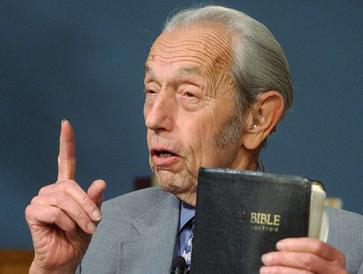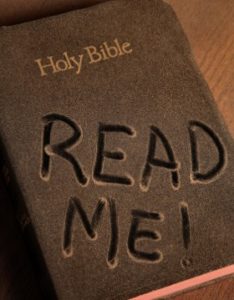In the early part of the twentieth century nothing had really changed in the RPCNA with respect to the emphasis it had on societal and political concerns. So much so that the 2020 Synod’s Special Committee on Christ’s Mediatorial Kingship lamented the “implicit moralism” of the 1912 RP Catechism:
“The 1912 RP Catechism essentially strips away the gracious, redemptive overtones of the term mediatorial (as understood historically and confessionally within the RP tradition) and redefines it primarily in terms of authority, law, morality, and social influence. As a result, it spends most of its energies seeking to establish the supreme moral authority of Christ and the Scriptures. Once this is accomplished, it outlines a long list of highly detailed commands, duties, and principles, each of which must be obeyed within the family, the church, the state, voluntary societies, the workplace, and personal recreation. It seeks to regulate virtually every aspect of life with precise Biblical standards of conduct, including total abstention from alcohol and tobacco, the avoidance of ungodly amusements, principled dissent from the US Constitution, cheerful giving to the church, and, of course, strict and unwavering adherence to the Scriptural posture for the worshipper in public prayer (i.e. “either kneeling or standing”).”
The committee further lamented the language used in the 1945 revision of Chapter 30 (“Of the Right of Dissent from a Constitution of Civil Government”) from the Reformed Presbyterian Testimony:
“…its emphasis and vocabulary are notably different. Rather than viewing Christ’s kingdom primarily in terms of soteriology (e.g. John 3:3; WSC 102) and ecclesiology (e.g. Matt. 16:19; WCF 25.2), it defines the kingdom along broader cultural, ethical, and ideological lines. The danger here, of course, is that Christianity will eventually be reduced to an abstract, intellectual worldview, and that salvation will come to be identified primarily with the outward acceptance of certain moral and political principles. This, in turn, would threaten to undermine the Scriptural emphasis upon the sinner’s need for a personal acceptance of Jesus Christ according to the gospel, leading to a new grace filled life in spiritual fellowship with other believers in the body of Christ.”
By the 1960s, however, political principles were being looked at differently, and in 1962 a revision of Chapter 29 of the Testimony did away with the notion that ungodly governments were illegitimate. By 1967, dissent was largely jettisoned, and the 1970 Testimony rejected the earlier political emphasis of Samuel Wylie and Alexander McLeod concerning the mediatorial dominion of Christ.
But political dissent is still promoted nowadays, and when it is, there is frequently a ferocious attack made on the U.S. Constitution as an inherently wicked document. In that regard, there is precious little difference in present day arguments from those found in Samuel Wylie’s “Two Sons of Oil.” So, we will look briefly at the U.S. Constitution in light of some of Wylie’s arguments (as well as some others that have been made), and, as promised in Part Three of this series, we will also take a look at a couple of Wylie’s anticipated objections to his arguments.
Wylie had argued that the magistrate was subject to Christ as mediator, and from there argued that the magistrate must be a professing Christian and that the American government itself was immoral and its authority illegitimate. Therefore, no church member should be involved in any activity that would affirm the government’s authority. Oaths of allegiance, participation in civil elections, office holding to which an oath was attached, and so on are prohibited.
Wylie makes the point that the individual state constitutions were positively immoral, but that it didn’t really matter anyway, because, after all, “the state constitutions necessarily bind to the support of the federal, as the bond of national existence; and hence the immorality contained in that instrument becomes common to them all.” But this ignores the federal nature of the republic at that time, where it was well understood that the individual states possessed most of the power, and had a certain level of autonomy.
It also conveniently ignores the reality that at the time of the ratification of the U.S. Constitution in 1788, all thirteen states had some sort of state support of religion. Nine of them had, or previously had, established denominations. A number of them had religious tests for civil office. Even some of those states that didn’t have established denominations still had religious tests. None of this was changed by the ratification of the Bill of Rights in 1791. Changes in that regard did come later, but it was the individual states that made those changes on their own.
Wylie mentions nothing about the text of the First Amendment, in which it is explicitly stated that “Congress shall make no law respecting an establishment of religion…” In 1833, Justice Joseph Story’s “Commentaries on the Constitution of the United States” were published. In this work, Story wrote this:
“Probably at the time of the adoption of the Constitution, and of the amendment to it now under consideration [First Amendment], the general if not the universal sentiment in America was, that Christianity ought to receive encouragement from the State so far as was not incompatible with the private rights of conscience and the freedom of religious worship. An attempt to level all religions, and to make it a matter of state policy to hold all in utter indifference, would have created universal disapprobation, if not universal indignation…
The real object of the First Amendment was, not to countenance, much less to advance Mahometanism, or Judaism, or infidelity, by prostrating Christianity; but to exclude all rivalry among Christian sects, and to prevent any national ecclesiastical establishment, which should give to an hierarchy the exclusive patronage of the national government.”
The same year that Story’s commentaries were published, the Supreme Court decided the “Barron v. Baltimore” case. It was a case that dealt with the scope of the Bill of Rights in relation to the states. Chief Justice John Marshall, writing for a unanimous court, opined that the first ten “amendments contain no expression indicating an intention to apply them to the State governments. This court cannot so apply them.”
So while the federal government could not make law with respect to establishments, the states were certainly free to, and, indeed, already had.
This situation, as a legal matter, remained the same until 1947, when the Supreme Court made its ruling in “Everson v. Board of Education.” This was the first Supreme Court case incorporating the Establishment Clause of the First Amendment through the Due Process Clause of the Fourteenth Amendment, making it apply to the states for the first time. It was in this ruling that the court adopted a new and broad interpretation of the Establishment Clause, with Justice Hugo Black using language taken from a long forgotten letter Thomas Jefferson had written in 1802 referring to a “wall of separation between church and state.”
Wylie anticipates that some would cite the Old Testament examples of Ezra, Nehemiah, and Daniel in objection to his position (curiously, he doesn’t mention Joseph in this connection):
“Obj. 4. “But the saints accepted offices, and held places of trust, under heathen princes. See the cases of Ezra, Nehemiah, and Daniel, in the books called by their names. If the saints thus accepted offices, &c., we may conclude, either first, that the power was legitimate–or second, that offices may be held under illegitimate governments, or third, that the saints sinned in accepting them. Ans. The second proposition we grant. The first and third we deny.”
You may ask why this is being mentioned given that the RPCNA dropped the illegitimacy question a long time ago. Wylie’s discussion here deals with such things as office holding and oaths of office. For that reason, it is still very relevant in today’s situation.
Wylie makes a distinction between holding an office under governors and governments (even “absolute” ones), and holding an office under a fixed constitution. The former he submits is lawful, while the latter he says is not, if it is an “immoral” constitution. Even serving an absolute tyrant is acceptable so long as there is no constitution to specify the immorality of the tyrant’s government. Wylie more or less takes it for granted that any government with a constitution would require an office holder to swear allegiance to it, thus a Christian could not hold office in such a situation.
He sees no similarity between Babylon and the United States, because Babylon had “no fixed constitution.” The king’s will was the law, whereas in “the American constitutions almost every thing is specific, and essential to the social compact.” Daniel, according to Wylie, didn’t have to concern himself with swearing allegiance to a constitution in Babylon or Persia, because there wasn’t one. But there clearly was a body of laws that existed in Daniel’s day, the Law of the Medes and the Persians (Daniel 6:12), and to the extent that they were a rule for the state, they functioned as a constitution. And Daniel would have been expected to both obey them and rule by them.
He (Wylie) also goes on to dismiss the objection that the king’s will was indeed the constitution:
“…this, even if admitted, makes no difference.The office was either such as required allegiance to this constitution, or it did not. If the latter, it is the thing contended for, viz., that there was no immoral obligation connected with his office. If the former, he was perjured, not only by breaking it in several instances, but in taking it also, for he swore to a blank, i.e., to perform he knew not what. But there is no account of Daniel’s coming under any such obligation.”
Where Wylie ends up, then, is that one can serve a horrible despot or, as he put it, a “government never so wicked.” That is not a problem, he says. The problem is the constitution, not the despot or the wicked government. More to the point, it’s the oath of allegiance to that constitution.
This whole business seems to be little more than a convenient device: It was Wylie’s attempt to explain away Daniel’s service in Babylon while at the same time obligating Reformed Presbyterians to dissent because of the “immoral” U.S. Constitution.
He does this in the most extreme of terms, as well, suggesting that a Christian may hold office in the most wicked of governments on the one hand, but condemning the U.S. Constitution as completely unsupportable on the other. So, apparently, it would be entirely appropriate to work in a government in the service of a monster, as long as there was no constitution that one had to swear allegiance to. Yet taking an oath to support and defend the U.S. Constitution is unacceptable! This is simply preposterous.
Wylie also anticipates that it would be asked why, since the Constitution is an amendable document, he didn’t advocate electing good men who could address the Constitution’s problems:
Obj. 14. “But the constitution makes provision for its own amendment; if, therefore, you think it wrong, why don’t you join and elect good representatives, who may be instrumental in rectifying it?” Ans. A representative must swear to support the constitution before he can take a seat in the legislative assembly. This oath we have already shown to be immoral, and such as we cannot, in good conscience, swear ourselves; what, therefore, we cannot do ourselves, on account of its immorality, we ought not to employ others to do for us.”
So here, Wylie, having made his case for why the oath is unlawful, now, because of the oath, maintains the vote is unlawful as well. It’s the last loop in the knot with which he attempts to bind the consciences of Reformed Presbyterians.
It seems apparent that Wylie’s view of the U.S. Constitution was skewed by his failure to understand the nature of the government it defined. Others have made similar errors. Here, we’ll only mention three:
First, the preamble to the Constitution:
“We the People of the United States, in Order to form a more perfect Union, establish Justice, insure domestic Tranquility, provide for the common defence, promote the general Welfare, and secure the Blessings of Liberty to ourselves and our Posterity, do ordain and establish this Constitution for the United States of America.”
It is frequently pointed out that there is no mention of God here, and, certainly it would have been well had the Triune God been invoked. But the objection is over the phrase “We the People,” as if this is a usurpation of God’s prerogatives. The reality is that there is absolutely nothing wrong with the phrase “We the People” or the rest of the preamble, so far as it goes.
As Dr. John Coffey has observed, Samuel Rutherford made it clear that “…the God-given power of government resided…in the community.” In Question IV of “Lex Rex,” Rutherford wrote:
“Conclus. The power of creating a man a king is from the people. 1. Because those who may create this man a king over that man have power to appoint a king; for a comparative action doth positively infer an action.”
In Question XIX, Rutherford adds this:
“Arg. 10. The people in power are superior to the king, because every efficient and constituent cause is more excellent than the effect…
…If the people by other governors, as by heads of families and other choice men, govern themselves and produce these same formal effects of peace, justice, religion, on themselves, which the king doth produce, then is there a power of the same kind, and as excellent as the royal power, in the people; and there is no reason but this power should be held to come immediately from God, as the royal power; for it is every way of the same nature and kind, as I shall prove.”
Also in Question XIX, he states this:
…the king is inferior to the people; or though he command the people, and so have an executive power of law above them, yet have they a fountain-power above him, because they made him king, and in God’s intention he is given as king for their good, according to this, “Thou shalt feed my people Israel,” and that, “I gave him for a leader of my people.”
Althusius had made the same argument prior to Rutherford. It is indeed “We the People” that established the nation and its constitution. God does not immediately make kings and constitutions. That power is delegated to the people. Thus while the text of the preamble to the U.S. Constitution is missing something to be sure, it nonetheless does not say something that is not true.
Second, Article VI of the Constitution:
“All Debts contracted and Engagements entered into, before the Adoption of this Constitution, shall be as valid against the United States under this Constitution, as under the Confederation.
This Constitution, and the Laws of the United States which shall be made in Pursuance thereof; and all Treaties made, or which shall be made, under the Authority of the United States, shall be the supreme Law of the Land; and the Judges in every State shall be bound thereby, any Thing in the Constitution or Laws of any State to the Contrary notwithstanding.
The Senators and Representatives before mentioned, and the Members of the several State Legislatures, and all executive and judicial Officers, both of the United States and of the several States, shall be bound by Oath or Affirmation, to support this Constitution; but no religious Test shall ever be required as a Qualification to any Office or public Trust under the United States.”
There are two allegations made with regard to this article. The first is that it states that the Constitution, laws, and treaties under U.S. authority are the supreme law of the land, but nowhere mentions the law of God. The second is that no religious test will be allowed as a qualification for a federal office, and that essentially means anyone of any religious stripe can hold office.
The first allegation, once again, simply misses what the text in question is for. What is contemplated in the second paragraph is civil authority and jurisdiction. The “Supremacy Clause,” as it is known as, is the way the Framers dealt with conflicts of law that would inevitably come between the states and the federal government. In such a conflict, the federal government’s acts would take priority over the acts of the states. This hardly was intended to suggest that the Constitution was a higher law than the law of God.
The second allegation has been already dealt with in the earlier discussion of the First Amendment. The Framers, for better or worse, sought to keep matters of religion confined to the states, and the notion that a follower of Islam, for example, could hold federal office was likely unthinkable to them.
Last, the “3/5ths Clause” of the Constitution:
In Article I, Section 2, the third clause says this:
“Representatives and direct Taxes shall be apportioned among the several States which may be included within this Union, according to their respective Numbers, which shall be determined by adding to the whole Number of free Persons, including those bound to Service for a Term of Years, and excluding Indians not taxed, three fifths of all other Persons.”
The wording in this clause apparently horrifies some people because the assumption is made that what is meant is that some people (namely, black slaves) don’t possess personhood. This is not what the language means at all. This clause deals with the representation and taxation of the states, setting forth the way both would be calculated and apportioned by population. Professor Erik M. Jensen of the Case Western Reserve University Law School writes this:
“The three-fifths rule for counting slaves is often misunderstood. When the Constitutional Convention debated the issue of how to count population for the purposes of representation, the Southern delegates to the Convention would have been pleased if nonvoting slaves had been counted as full persons. That way, the Southern states would have had a greater representation in the House of Representatives. In contrast, some Northern delegates resisted counting slaves at all.
…understood in context, the three-fifths apportionment rule was not necessarily proslavery in principle, for even though slaves were property under the laws of the Southern states, the Constitution itself acknowledged that they were persons. In addition, by tying both representation and direct taxation to apportionment, the Framers hoped to remove any sectional benefit, and thus any proslavery taint, from the special counting rule. In fact, the slave states despised having to give in and accept the Direct Taxes Clause as part of the price of obtaining the three-fifths counting rule.”
In summary, while there can be no doubt that the U.S. Constitution is not without its flaws where the Christian is concerned, it simply is a calumny to say it is inherently wicked or evil. It is certainly true we have much evil in our country that is codified in our laws and maintained to be “constitutional.” But it is also true that the problem lies not with the Constitution but with the courts (primarily the Supreme Court), which with great frequency have twisted the Constitution far from anything resembling the intent of its framers. One could argue that much of our current government is godless and corrupt, and that would certainly be true. But that isn’t what Reformed Presbyterians, past or present, have focused on. Instead they have consistently attacked the Constitution as being wicked from its origin.
There is a great distinction between the omission of mentioning the Triune God in a number of places in the Constitution, and actual hostility to or renunciation of the Triune God. This is a distinction that has been lost on many a Reformed Presbyterian.
It is worthwhile to note, again (see Part Four of this series), that Wylie and McLeod themselves eventually came to the conclusion that the U.S. Constitution’s flaws didn’t prohibit either citizenship or suffrage for the Christian.





